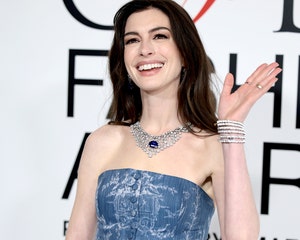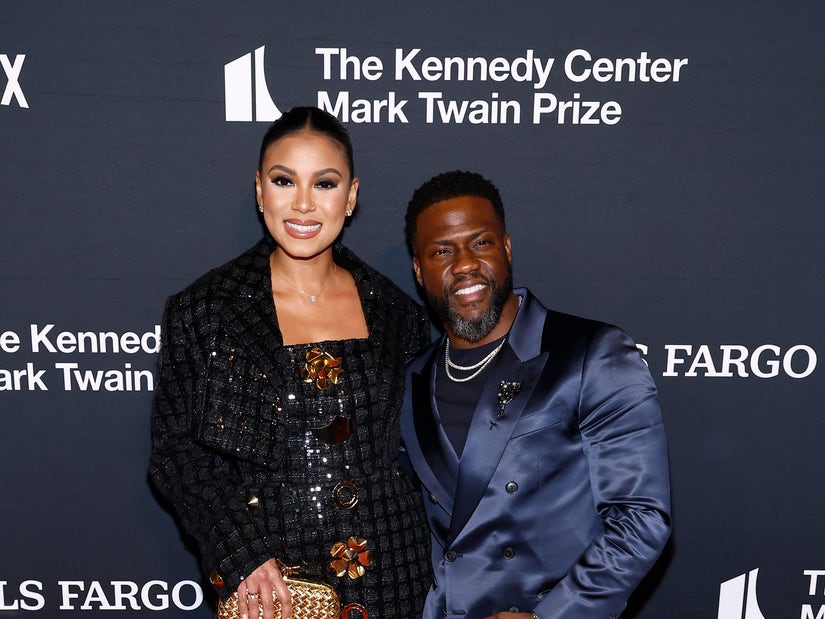“A lot of people wouldn’t give me roles because they were so concerned about how toxic my identity had become online,” Hathaway told ‘Vanity Fair,’ before crediting director Christopher Nolan with keeping her career afloat.
Anne Hathaway is looking back on a particularly difficult time in her career.
While the actress is now in her “icon” era, there was a time when Hathaway was regarded as “toxic,” hated simply for the way she came off on-stage and in interviews.
The backlash, much of which began with her Oscar win for her role as Fantine in the film adaptation of Les Misérables in 2013, followed Hathaway for years, with think pieces calling her “fake,” and people like Howard Stern — who openly admitted to hating her “and I don’t even know why sometimes” — describing her as “so affected and actress-y.”
Getty
Anne Hathaway Opens Up About ‘Hathahate’ Experience After Oscar Win
View Story
Returning to Hollywood in recent years as one of the most beloved and fashion-forward stars of our time, Hathaway said that time in her life was particularly tough, and even had her questioning the direction of her career.
“A lot of people wouldn’t give me roles because they were so concerned about how toxic my identity had become online,” Hathaway told Vanity Fair, before crediting director Christopher Nolan with keeping her career afloat in Interstellar. “I had an angel in Christopher Nolan, who did not care about that and gave me one of the most beautiful roles I’ve had in one of the best films that I’ve been a part of.”
She continued, “I don’t know if he knew that he was backing me at the time, but it had that effect and my career did not lose momentum the way it could have if he hadn’t backed me.”
Waiting for your permission to load the Instagram Media.
Hathaway, who serves as the magazine’s April cover star, said that while the humiliation she endured for years “hurt,” it encouraged her to stay “bold” and remember why she wanted to become an actress in the first place.
“Humiliation is such a rough thing to go through,” she said. “The key is to not let it close you down. You have to stay bold, and it can be hard because you’re like, ‘If I stay safe, if I hug the middle, if I don’t draw too much attention to myself, it won’t hurt.'”
“But if you want to do that, don’t be an actor,” she advised. “You’re a tightrope walker. You’re a daredevil. You’re asking people to invest their time and their money and their attention and their care into you.”
“So you have to give them something worth all of those things,” Hathaway added. “And if it’s not costing you anything, what are you really offering?”
As for how she handles fame these days, Hathaway tells VF, “All the advice that you’re given is to protect yourself. Everybody’s dangerous and everybody’s trying to get something from you.’ … People were advising me that I armor myself and keep that distance, and that I have two selves … I found that terribly confusing so I don’t do it that way. I’m not armored.”

Getty
Anne Hathaway Was Told Her Career Would ‘Fall Off a Cliff’ at Age 35 as a Woman
View Story
Crediting her husband, Adam Shulman, and their two sons, Jonathan, 8, and Jack, 4, for eliciting more of a softness within her, the Devil Wears Prada star added, “When I was younger, the way that I knew how to improve was by being hard on myself. There’s a ceiling to that path. I had to relearn what it means to have drive but to do it in a nurturing way. And that’s when you go, ‘Oh, if there’s a ceiling, I haven’t discovered it yet.'”
The armor’s not totally down, however, with Hathaway admitting that she no longer has a “relationship” with herself online, preferring to keep a healthy distance from social media trolls.
“I make a lot of my lifestyle choices in service of supporting mental health,” the 41-year-old actress told the outlet. “I stopped participating in things that I know to be draining or can cause spirals.”
Her advice for battling through it as someone who did and has come out the other end? This too shall pass.
“I want to hug them, make them tea and tell them to live as long and as well as they can,” she shared when asked what she’d tell a young person who finds themselves on the receiving end of cyber-hate. “That there is an excellent chance that the longer they live, the smaller this moment will feel. That I wish them a life a million times more fascinating than this terrible moment.”


